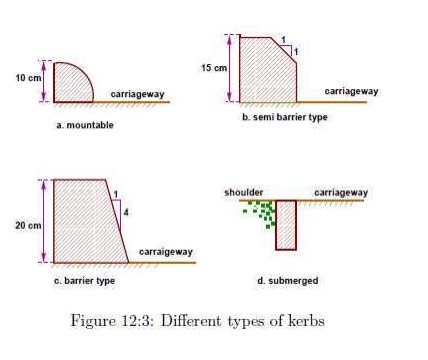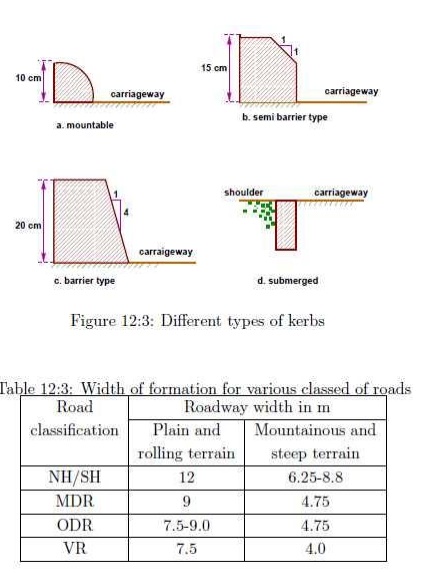Chapter: Civil : Highway Planning and Alignment : Highway Engineering
Importance of Kerbs

Importance
of Kerbs
Kerbs indicate the boundary between the carriage
way and the shoulder or islands or
footpaths.
Different
types of kerbs are
Low or mountable kerbs : This type of kerbs are
provided such that they encourage the traffic to remain in the through traffic
lanes and also allow the driver to enter the shoulder area with little
difficulty. The height of this kerb is about 10 cm above the pavement edge with
a slope which allows the vehicle to climb easily. This is usually provided at
medians and channelization schemes and also helps in longitudinal drainage.
Semi-barrier type kerbs : When the pedestrian
traffic is high, these kerbs are provided. Their height is 15 cm above the
pavement edge. This type of kerb prevents encroachment of parking vehicles, but
at acute emergency it is possible to drive over this kerb with some difficulty.
Barrier type kerbs : They
are designed to discourage vehicles from leaving the pavement. They are
provided when there is considerable amount of pedestrian traffic. They are
placed at a height of 20 cm above the pavement edge with a steep batter.
Submerged kerbs: They are used in rural
roads. The kerbs are provided at pavement edges between the pavement
edge and shoulders. They provide lateral confinement and stability to the
pavement.
Width of
formation:
Width of
formation or roadway width is the sum of the widths of pavements or carriage
way including separators and shoulders.

Related Topics